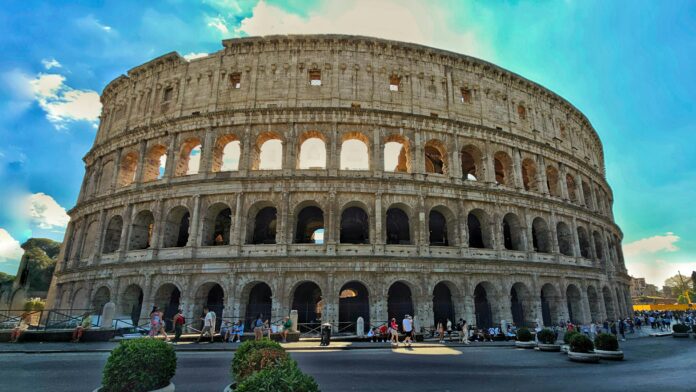
Applications for Airbnb’s gladiator experience at Rome’s Colosseum will open on November 27 at 9 a.m. ET and run until December 10, offering tourists the chance to participate by submitting through the Airbnb website or app. The company plans to host gladiator fights in the Colosseum next year after more than 1,500 years of silence, inviting tourists to experience being a gladiator as part of its revitalization effort for heritage tourism in Europe.
Immersive Gladiator Training
The ancient arena will be opened after sunset on two evenings in May for immersive gladiator training and ancient history exploration, hosting up to 16 guests each night. The two- to three-hour program in the historic surroundings includes demonstrations by professional gladiators and lessons in combat practices for the visitors themselves, allowing them to learn and test basic combat techniques.
Participants will begin the spectacle in the underground chambers of the Colosseum, where they will don the armor of their choice and choose their gladiator persona. The event culminates in demonstrations of fights with swords and shields in the middle of the arena, including an exciting duel of seasoned gladiators.
Airbnb is using the nearly two-thousand-year-old Colosseum in Rome for a PR spectacle as part of a project to revitalize heritage tourism in Europe, offering support for its restoration and enhancement. The Colosseum, built nearly 2,000 years ago between 70 and 72 CE during the reign of Roman Emperor Vespasian, is one of the most iconic and well-preserved ancient structures still standing in Rome and once accommodated up to 70,000 spectators.
Colosseum Tourism
The Colosseum is one of the most visited attractions in Italy, with about seven million tourists per year, and was chosen as one of the New Seven Wonders of the World in 2007 due to its historical and archaeological value. The last real gladiator fights in the Colosseum took place in the fifth century, and now, for the first time in hundreds of years, there will be gladiators in the Roman Colosseum.
However, the initiative has drawn criticism from activists and local residents. Activists point to Airbnb’s role in driving up rental prices across major cities, including Rome, contributing to the “touristification” of historic cities, and its PR campaign has caused criticism in Italy’s capital, according to Die Zeit. In Rome, the housing situation is particularly extreme due to short-term rentals, making affordable housing scarce for residents and students.
Airbnb, like other platforms, is blamed for making affordable housing scarce through the short-term rental of apartments to tourists, according to Süddeutsche Zeitung. Critics cite controversies in many cities over short-term rental platforms like Airbnb fueling overtourism and exacerbating affordable housing shortages.
Citizen initiatives are outraged and are protesting against the Airbnb campaign, with local residents and city hall representatives expressing their discontent, according to Die Zeit. Another accusation is that Airbnb is transforming the UNESCO World Heritage site into a theme park. “Disneyland”, critics have called it, as reported by Süddeutsche Zeitung.
Massimiliano Smeriglio, the Assessor for Tourism, wrote a letter to Airbnb’s management asking them to abandon the project, which he described as “commercializing culture” and risking turning the Colosseum into Disneyland.
Despite the controversy, Airbnb is moving forward with the project. The experience at the Colosseum is part of Airbnb’s response to measures aimed at reactivating heritage tourism in Europe, with booking applications available from November 27 to December 10.
The program offers visitors a chance to immerse themselves in ancient history. Participants will receive instruction in combat practices, allowing them to learn and test basic combat techniques. The event includes demonstrations by professional gladiators, giving visitors a unique hands-on experience in one of the world’s most famous ancient arenas.
The Colosseum’s historical significance and architectural grandeur make it a symbol of Rome’s rich cultural heritage. Built nearly 2,000 years ago, it once accommodated up to 70,000 spectators who gathered to watch gladiatorial combats and other public spectacles, as reported by Die Zeit. Now, Airbnb aims to bring a taste of that history back to life for a select few visitors.
As the date for applications approaches, the debate over Airbnb’s role in the tourism industry and its impact on local communities continues. Activists and local residents are calling for a reevaluation of the project, highlighting concerns over the commercialization of cultural heritage sites and the housing crisis exacerbated by short-term rental platforms.







